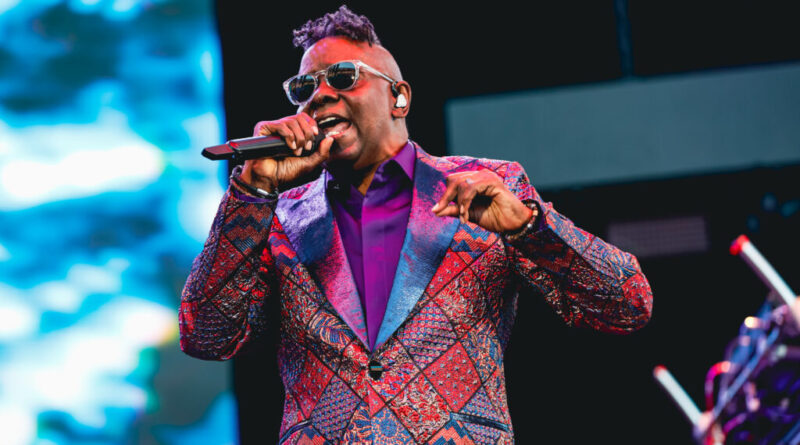Philip Bailey Of Earth, Wind & Fire Shares the Keys To His Success

Songwriter, musician and lead falsetto vocalist Philip Bailey rose to prominence as an integral member of Earth, Wind & Fire. Critics have widely recognized the group’s unformidable force in dominating the airwaves with timeless hits, dubbing the band “The Black Beatles.” Amassing legions of fans across genres and generations, and influencing artists such as Mary J. Blige, Usher, Beyoncé and Janelle Monáe, is a testament to the legendary group’s undeniable impact.
With more than five decades in the industry, Bailey continues to utilize his platform to uplift, empower and advocate for other artists and foster care youth.
Through his Music is Unity foundation’s Backstage Soundcheck program, foster care teens are invited to attend backstage sound-checks while on tour, introducing kids to various facets of creating a musical production.
In honor of Black Music Month, BLACK ENTERPRISE spoke with the Rock & Roll Hall of Fame inductee to learn more about his foundation, storied career and the indelible mark he has made through his art and advocacy.
Let’s talk about your Music is Unity foundation. Can you tell me more about why foster care advocacy is so near and dear to your heart?
Philip Bailey: My daughter and I created the foundation about 15 years ago to provide financial resources, mentorship, and support to youth aging out of the foster care system. Such a large population of kids are left to the wolves. I’m a father of seven and a grandfather of seven. I can’t imagine my kids having no one to turn to, no support and being thrown into this cruel, cold world. A portion of our Earth, Wind & Fire ticket proceeds go to “Music is Unity,” and we fund different organizations helping and supporting foster youth with their needs and necessities.
Aside from donating, what can others do to help enhance the lives of children in foster care?
People can get involved in their communities with foster care agencies because people everywhere need support and encouragement. The sad thing about this is foster youth find themselves in situations by no fault of their own.
Can you take us back to when Earth Wind & Fire was in the studio writing and recording songs such as “Keep Your Head to the Sky,” “Reasons” and “Fantasy”? Did you realize then that these songs would resonate for generations to come?
Well, we were young enough and had yet to have any prior recording experience except for Maurice. We wanted to make the best music because we were inspired by the greats that came before us. We were trying to pass the test and make music that resonated with us. We had the great Charles Stepney, our co-writer, producer, and a great mentor who helped us understand what we were doing. We were signed to Columbia Records with Clive Davis. He was someone who championed our musical aspirations.
Is there a record from your catalog with your group or solo that you think should have been a bigger hit?
The first one that came to mind was the Faces album for Earth, Wind & Fire. That should have been more successful because it was a good record. I did a record a couple of years ago called “Love Will Find a Way,” and I had a lot of wonderful young musicians who were great in their own right on that record. I would’ve liked to have seen that do a lot better. But it is a different day. It’s a different time. Music doesn’t fill the space it used to because there’s so much vying for our attention. We have hundreds of stations on the television, the internet, and your phone. People don’t sit down and listen to music the way we did.
Who are some of the current artists that you admire?
Lucky Daye because he’s a very talented singer and musician. I love Gregory Porter and Christian McBride, and there are many other different artists that I really like.
What skills or personal attributes do you think are most important to be successful in sustaining career longevity?
Career longevity comes from having empathy, tenacity, and the ability never to stop learning because we’re all students of life.
What has been the most challenging part of your journey so far?
One of the most challenging parts is staying humble, grounded, and not believing your own press.
Your career has evolved so much throughout the years. What do you want your art to say about you when it’s all said and done?
I want my art to say, “He lived his life in a way that was a positive contribution to society and a blessing to his creator.”
RELATED CONTENT: Jaia Thomas Teams Up to Launch Black Music Database to Increase Job Opportunities for Black Professionals

